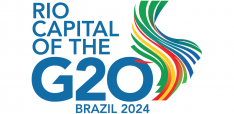Can Economic Surveillance make a Difference? Insights from the OECD
This essay summarizes the results of a larger study evaluating the effectiveness of OECD economic surveillance in 24 randomly selected countries. Because the OECD’s advice is only backed by peer pressure, we would expect little evidence that this advice leads countries to adopt policy reforms. Through evaluating subsamples of cases of countries under economic crisis, exploiting within-country variation, and drawing comparisons with more legalized international organizations, we conclude that surveillance can indeed lead to policy reform.
Policy Implications
- Surveillance through peer review can be useful in building support for economic policy reform, especially for countries facing economic crisis.
- The global economic crisis helps to demonstrate the value of the OECD as an organization that gives members advice on appropriate policies.
- The differences in effectiveness between international organizations using hard and soft law can be overstated.
- The proliferation of international organizations relying on surveillance should not concern policy makers; these findings suggest that these organizations can produce useful advice.


